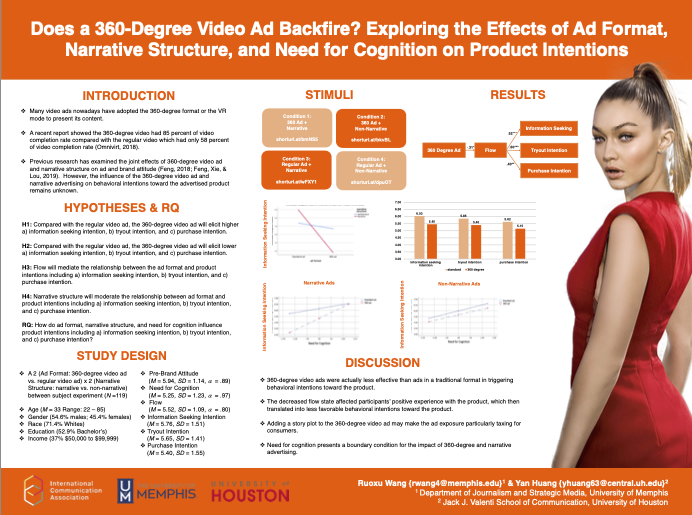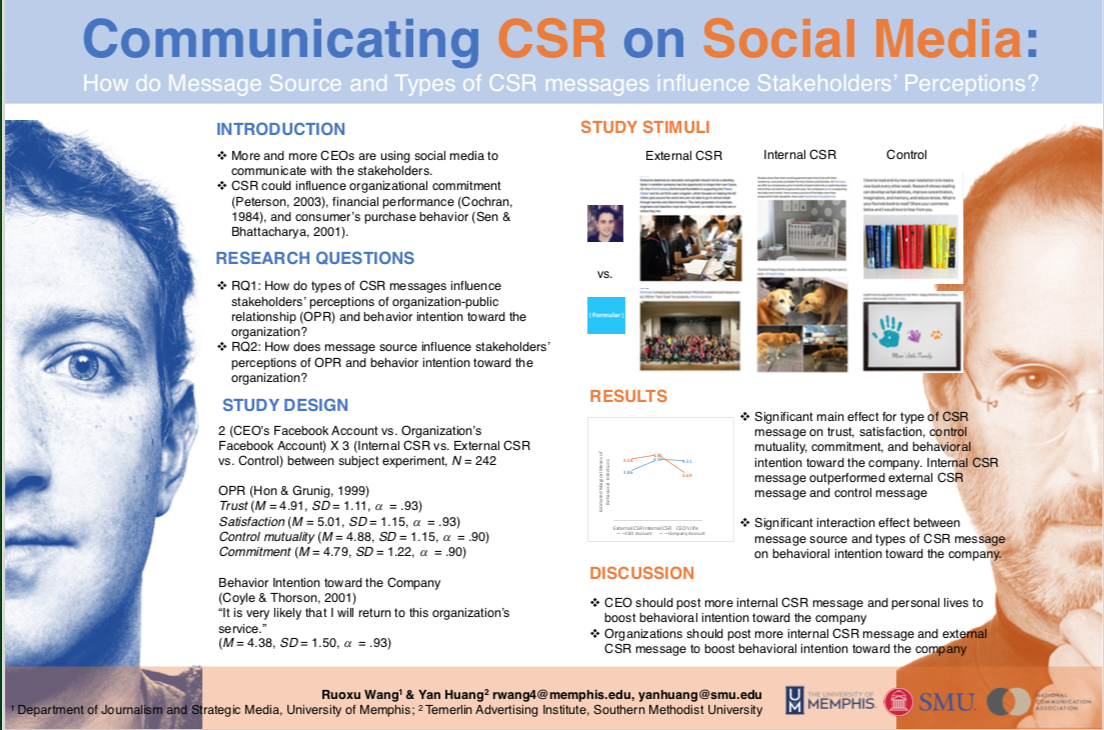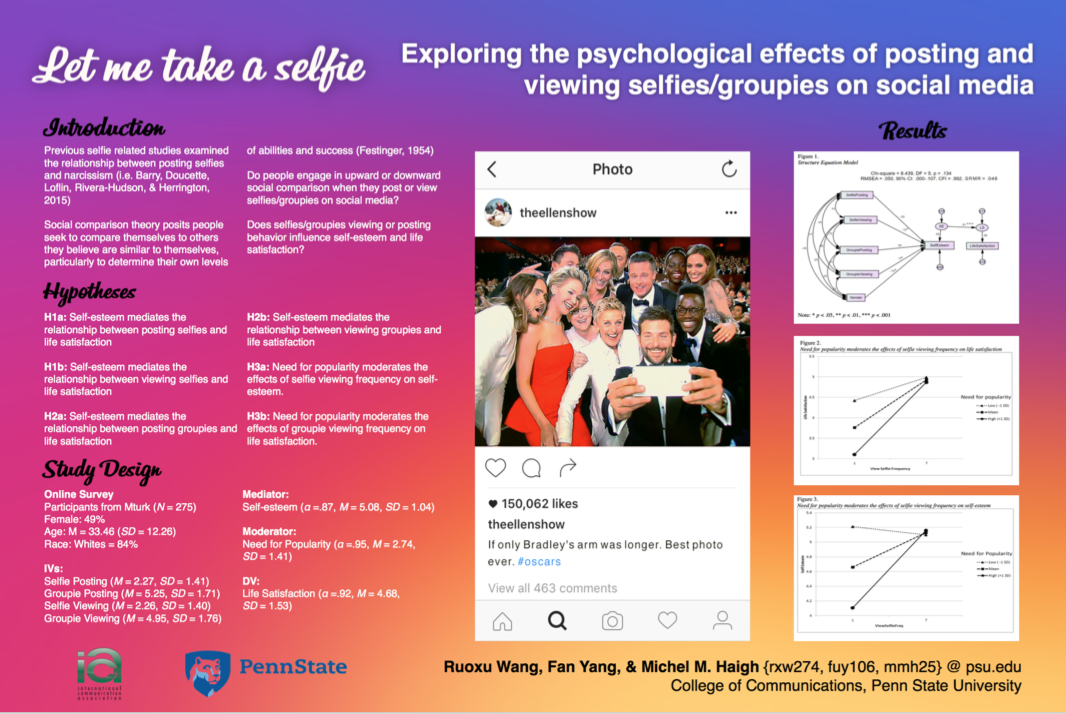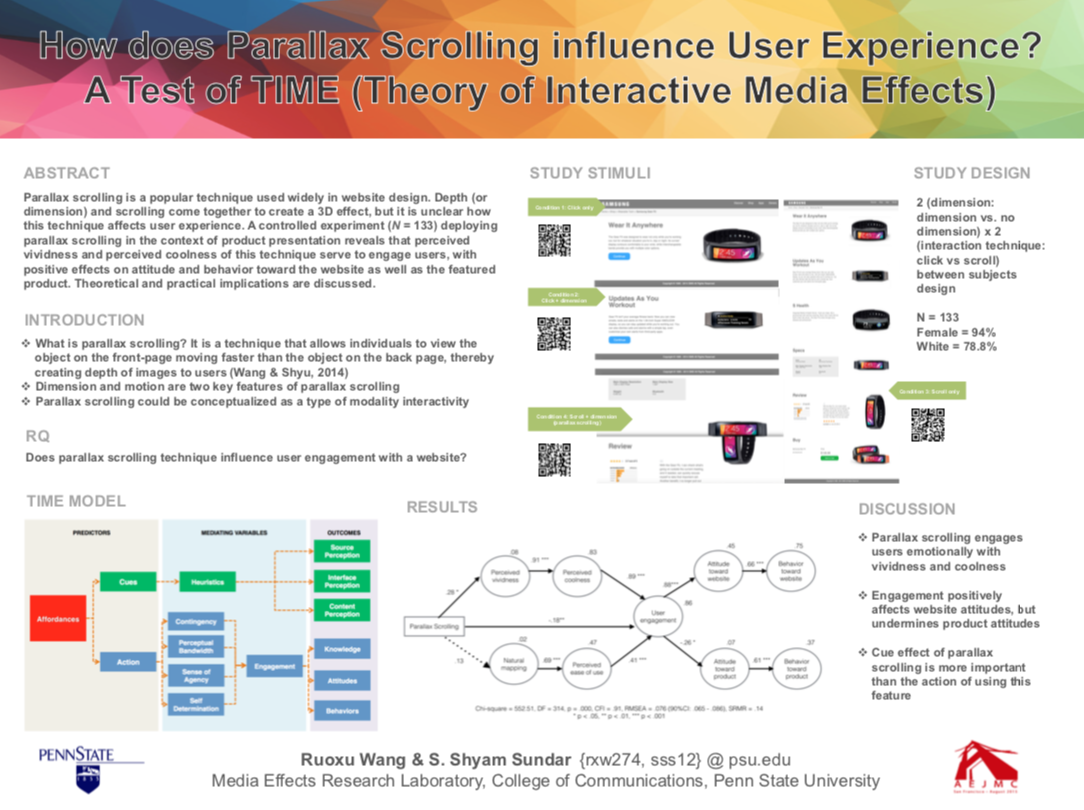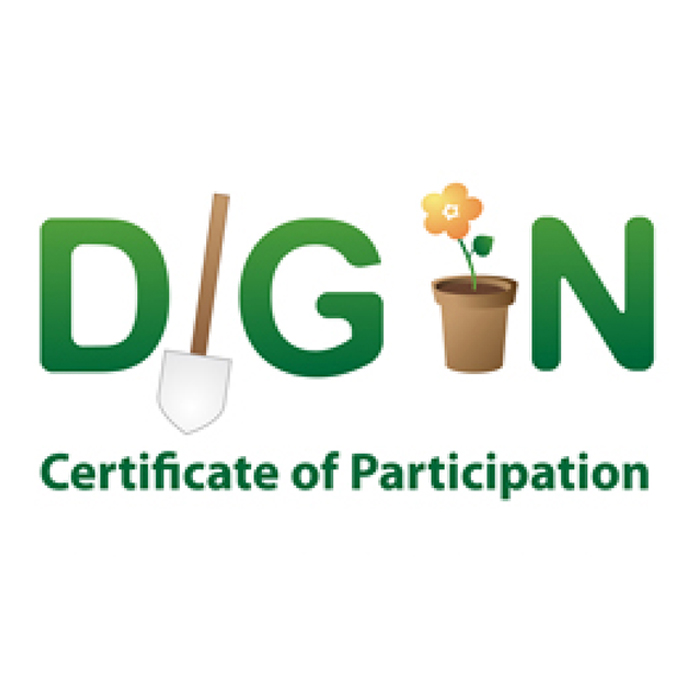Wang, R., & Yang, J. (2024). Displaying health cues on online dating profiles: How do gender, smoking, and COVID-19 vaccination statuses influence impression and dating decision. Telematics and Informatics, 95, 102192
Yang, J., Wang, R., & Arant, D. (2024). How did university leaders lead during the COVID-19 crisis? Messages, responses, and leadership. Journal of Higher Education Management, 39(2), 127 - 147
Wang, R., & Haigh, M. M.(2024). News reading on smartphones: How do mood, modality interactivity, and news story length influence news engagement? Behaviour & Information Technology.
Wang, R., Yang, J., & Haught, M. (2023). User engagement with consumer technology video ads on YouTube: A study of content analysis and experiment Telematics and Informatics Reports. 12, 1-9.
Yang, J., Wang, R., Cook, A., & Fuller, R. (2023) Gaming during the COVID-19 Pandemic: Examining its Effect on Loneliness & Motivation, Playing and Gratification Differences between Competitive and Recreational Gamers Telematics and Informatics Reports. 11, 1-11.
Wang, R., & Huang, Y. (2022) How Do Narrative Structure and Format Influence a 360 Degree Video Ad? Journal of Promotion Management. 28(6), 1-21
Wang, R., Yang, J., & Asser, L. (2021). User Experience (UX) matters: What are the most desired skills in the UX designer and UX researcher job ads. Journal of Communication Technology. 4(2),82-105.
Wang, R. & Wu, M. (2020). Catch them all: Exploring the psychological impact of playing Pokemon GO. Journal of Communication Technology. 3(1),53-72.
Wang, R., Huang, Y., & Anghelcev, G. (2020). Exploring the effects of compliance/non-compliance message framing, desirability of end states, and brand zealotry on consumers' responses to wearables advertising. Journal of Promotion Management. 26(7), 964-985
Huang, Y., Bortree, D. S., Yang, F., & Wang, R. (2019). Encouraging volunteering in nonprofit organizations: The role of organizational inclusion and volunteer need satisfaction. Journal of Nonprofit & Public Sector Marketing. 32(2), 1-19
Wang, R., & Huang, Y. (2018). Communicating corporate social responsibility on social media: Effects of CSR strategy and source on stakeholders' perceptions.Corporate Communications: An International Journal. 23(3), 326 - 341
Wang, R., & Yu, N. (2018). Friending instructors on Facebook: Exploring the role of privacy on student-instructor connection on cyberspace. Telematics and Informatics. 35(5), 1215 - 1221.
Wang, R., & Sundar, S. S. (2018). How does parallax scrolling influence user experience? A test of TIME (Theory of Interactive Media Effects). International Journal of Human Computer Interaction. 34(6), 533 - 543.
Wang, R., & Huang, Y. (2017). Going native on social media: The effects of social media characteristics on native ad effectiveness. Journal of Interactive Advertising. 17(1), 41 - 50
Wang, R., Yang, F., & Haigh, M. M. (2017). Let me take a selfie: Exploring the psychological effects of posting and viewing selfies and groupies on social media.Telematics and Informatics. 34(4), 274-283.
Wang, R., Kim, J, Xiao, A., & Jung, Y. J. (2017). Networked narratives on Humans of New York: A content analysis of social media engagement on Facebook. Computers in Human Behavior. 66, 149-153.
Wang, R., Yang, F., Zheng, S., & Sundar, S. S. (2016). Why do we pin? New gratifications explain unique activities in Pinterest. Social Media + Society. 2(3), 1-9.
Ott, H. K., Wang, R., & Bortree, D. S. (2016). Communicating sustainability online: An examination of corporate, nonprofit, and university websites. Mass Communication and Society. 19(5), 671 - 687.
Wu, M., Huang, Y., Li, R., Bortree, D. S., Yang, F., Xiao, A., & Wang, R. (2016). A tale of two sources in native advertising: Evaluating the effects of source credibility and priming on trust and perceived deception. American Behavioral Scientist. 60(12), 1492-1509.

